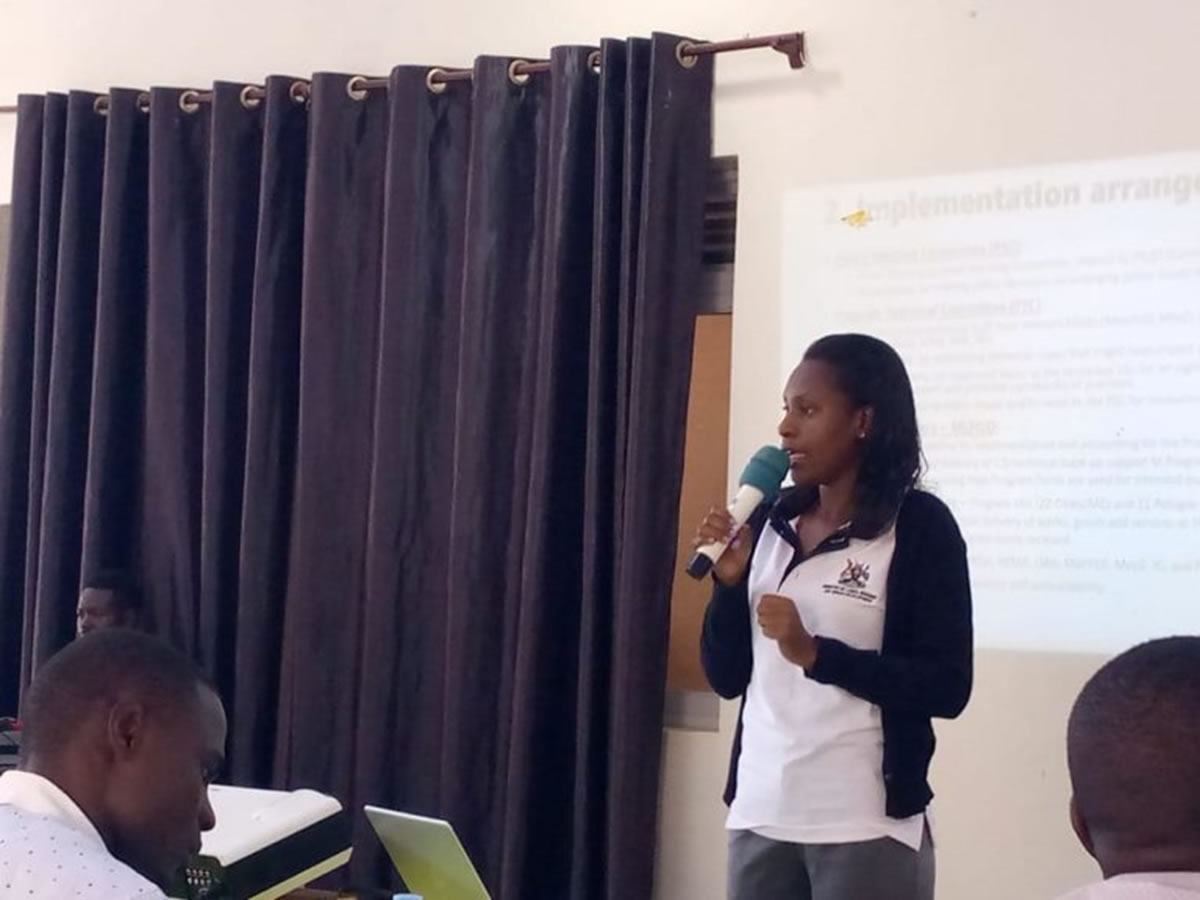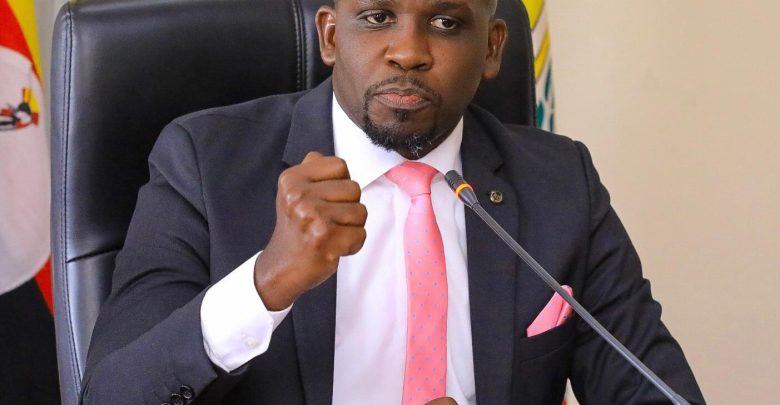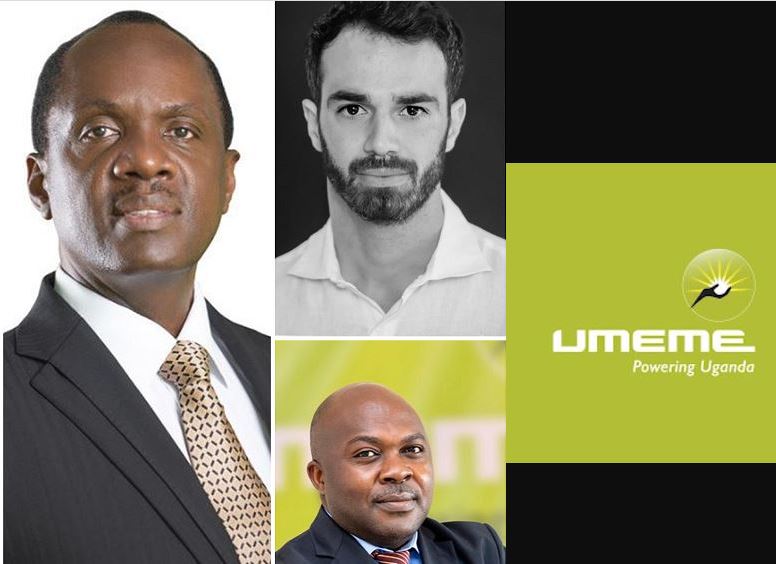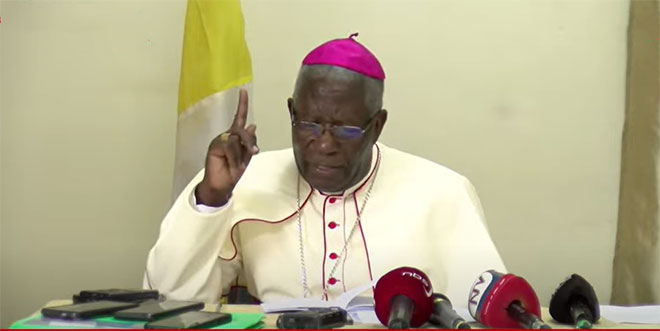The USMID programme was designed in 2013 to enhance the institutional performance of 14 municipal councils so as to improve urban service delivery through infrastructural development.
 Nabakooba said although there is a window to reapply for those funds in the new financial year, the procedures are cumbersome.
Nabakooba said although there is a window to reapply for those funds in the new financial year, the procedures are cumbersome.
Lands, Housing and urban development minister Judith Nabakooba says plans are underway to extend the Uganda Support to Municipal Infrastructure Development (USMID) programme beyond its implementation period next year.
She says this is to consolidate the achievements accrued to the country’s infrastructural development.
However, the World Bank has already formally notified the lands ministry that it will not be renewing financing to the programme when the current contract expires in May 2023.
“Our view is that this project has been impactful,” she says, adding that currently, nine cities have benefitted from heavy infrastructural development in form of tarmacking of roads.
This, she says has improved the country’s overall road network.
“With the project winding up, it is our request that another project is designed to help our infrastructural development,” Nabakooba says.
She was speaking during the joint review meeting for the sustainable urbanisation and housing programme at the Speke Resort Hotel, Munyonyo on November 2, 2022.
The event was presided over by Vice-President Jessica Alupo.
Nabakooba noted, however, that there was a need to improve some aspects of project implementation during the remaining period to ensure its smooth running.
Project bedevilled by delays
She said, for example, that some projects in some districts have faced delays in the disbursement of funds.
On average, at least sh300b of the project’s funds are being returned to the Consolidated Fund at the end of the financial year due to low absorption.
Nabakooba said although there is a window to reapply for those funds in the new financial year, the procedures are cumbersome.
“We have contractual obligations and some contractors have threatened to take us to court. If the contractors are not supported, work will slow down and yet deadlines have to be met,” she added.
About the programme
The USMID programme was designed in 2013 to enhance the institutional performance of 14 municipal councils so as to improve urban service delivery through infrastructural development.
Arua, Gulu, Lira, Soroti, Moroto, Mbale, Tororo, Jinja, Entebbe, Masaka, Mbarara, Kabale, Fort Portal and Hoima are some of the initial beneficiary entities.
The initial project sum was a $150 million (about 567.9 Uganda shillings) World Bank loan (2013 – 2018), but the project was extended further to 2023 as its scope increased.
Due to the many successes of the project, the Government has since turned nine of the 14 initial beneficiary municipalities into cities.
Poor Fund Absorption Threatens USMID Projects
World Bank has expressed concern over the low absorption of funds by local governments implementing the Uganda Support to Municipal Infrastructure Development (USMID) Additional Financing project.
Out of the US$5.4 billion invested in the program, only 30% of the funds have been absorbed by local governments, with an average of UGX 300 billion returned to the Consolidated Fund at the end of the financial year.
The poor utilization of disbursed funds among the local governments has been identified as one of the greatest hindrances affecting project implementation. Christine Kasedde, the World Bank Environmental Specialist made these comments during a review meeting of USMID projects and other sub-activities implemented under the refugee window on Tuesday in Arua City.
The Uganda government, with support from the World Bank, launched the USMID program in 2013 to enhance the institutional performance of municipal councils and improve service delivery in urban areas through infrastructural development.
Some of the initial beneficiary local governments include Gulu, Arua, Lira, Moroto, Soroti, Tororo, Mbale, Jinja, Entebbe, Masaka, Hoima, Mbarara, Kabale, and Fort Portal. However, through the Additional Financing, the project has been extended to Refugee Housing districts in the country, such as Madi Okollo, Terego, and Yumbe.
Meanwhile, Charles Otim, an Environmental Specialist at the Ministry of Lands, Housing, and Urban Development has appealed to contractors to comply with the project guidelines on safeguard standards to prevent accidents.
Six deaths of workers have been documented so far due to contractors’ failure to comply with project safety standards. The current contract for the USMID program expires in May this year, although the government, through the Ministry of Lands, Housing, and Urban Development, is considering extending the program beyond its implementation period next year.
Incompetent contractors blamed for slow progress of USMID projects
 Doreen Nshabohurira, ministry of lands communications officer
Doreen Nshabohurira, ministry of lands communications officer
Lira
Ministry of lands, housing and urban development has blamed the slow progress of Uganda Support to Municipal Infrastructure Development (USMID) projects on incompetence among contractors and delay by ministry of finance to fund the project.
The communications officer in ministry of lands, Doreen Nshabohurira said most of the USMID contractors are not competent enough to run the projects which has resulted in delay in implementation of these projects.
Addressing journalists in Lira city on the implementation of USMID projects at Pauline Hotel, Nshabohurira said most of the municipal and city leaders selected incompetent contractors to implement the project.
She further said delays by ministry of fiance to disburse project funds and shifting of utility lines had greatly affected the progress of the projects.
She also revealed that, they are in touch with government to consider extending USMID projects to benefit more municipalities and cities across the country.
USMID project is being undertaken in Arua, Lira, Gulu, Soroti, Entebbe, Mbale, Tororo, Jinja, Masaka, Hoima, Fort portal, Mbarara, Kabale and Moroto.
Meanwhile, government received another US$ 360 million from the World Bank/IDA to extend the projects to ; Kitgum, Kamuli, Mubende, Kasese, Busia, Ntungamo, Apac and Lugazi, Adjumani, Moyo, Yumbe, Arua, Isingiro, Kiryandongo, Kamwenge and Lamwo for the second phase of the project.
In Lira City, there has been public outcry over slow progress in implementation of USMID projects being undertaken by Abubakar and Alnuami group



